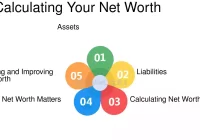How to choose the right financial planner?
Introduction Choosing the right financial planner is crucial for managing your wealth, planning for retirement, and securing your financial future. A well-qualified financial planner can help you navigate investments, tax strategies, estate planning, and more. However, with various credentials and fee structures, selecting the right planner can be daunting. This guide will help you understand… Read More »





